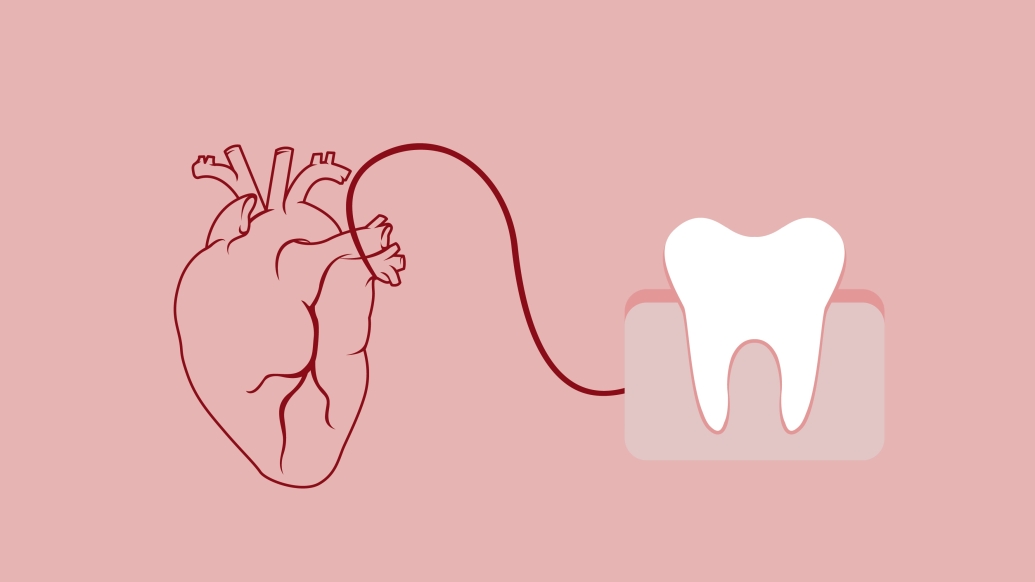If you’re wondering what your teeth and gums have to do with your heart, here’s some important information to chew on.
7:00 AM
Author |

Healthy teeth and gums are important for reasons other than showing off your smile.
Many people who need surgery — heart valve replacement in particular — might have to delay the procedure for weeks, or even months, because of poor dental health.
MORE FROM MICHIGAN: Sign up for our weekly newsletter
A dentist must first check for and eliminate any present or potential sources of infection, including gum disease, severe tooth decay, tooth abscess or any soreness in the mouth. Prior to heart surgery, you will need a dental clearance exam, including X-rays to help your dentist detect damage and disease not visible during a regular dental examination.
Left untreated, bacteria in the mouth can travel through the bloodstream to the surgery site, causing complications such as infective endocarditis — a potentially life-threatening infection of the inner tissues of the heart, including the heart valves.
Another key reason clearance is vital for those set to undergo heart valve replacement: Such patients are typically prescribed anticoagulant drugs after the operation to prevent blood clots, but anticoagulant therapy can increase the risk of excessive bleeding during dental treatment. Having dental work before surgery, then, prevents the need to disrupt anticoagulation therapy.
Depending on your history, getting dental clearance for surgery may require one appointment or several trips to your dentist. If you have routine cleanings (typically twice a year) and an annual dental exam, your dental health is likely good.
Still, here are some things to consider.
Signs you may have gum disease
Eighty percent of American adults have some level of gum disease, which often goes undiagnosed, according to the Academy of General Dentistry.
Warning signs include:
-
Red, tender or swollen gums
-
Bleeding gums while brushing or flossing
-
Gums that seem to be pulling away from your teeth
-
Chronic bad breath or a bad taste in your mouth
-
Teeth that are loose or separating from each other
Preventive measures
The American Dental Association recommends optimal dental care to reduce the chance of developing dental decay, gum inflammation and oral infections such as abscess formation.
This includes:
-
Brushing teeth twice a day with an ADA-accepted fluoride toothpaste
-
Cleaning between teeth daily with floss
-
Eating a balanced diet and limiting snacks between meals
-
Visiting your dentist regularly for oral examinations and professional cleanings

Explore a variety of health care news & stories by visiting the Health Lab home page for more articles.

Department of Communication at Michigan Medicine
Want top health & research news weekly? Sign up for Health Lab’s newsletters today!





